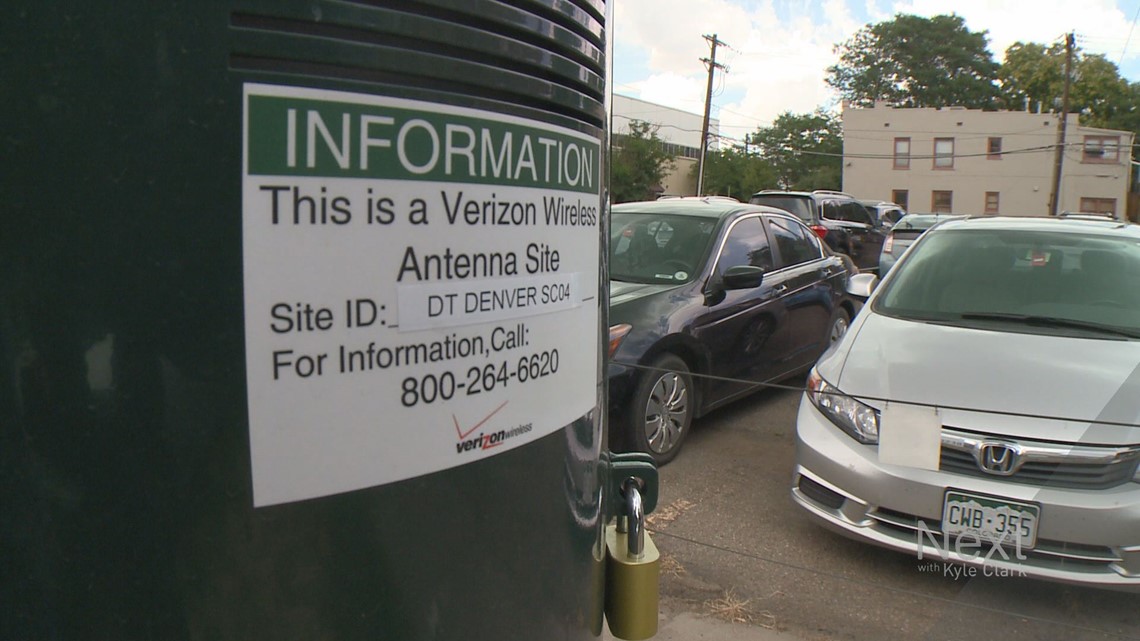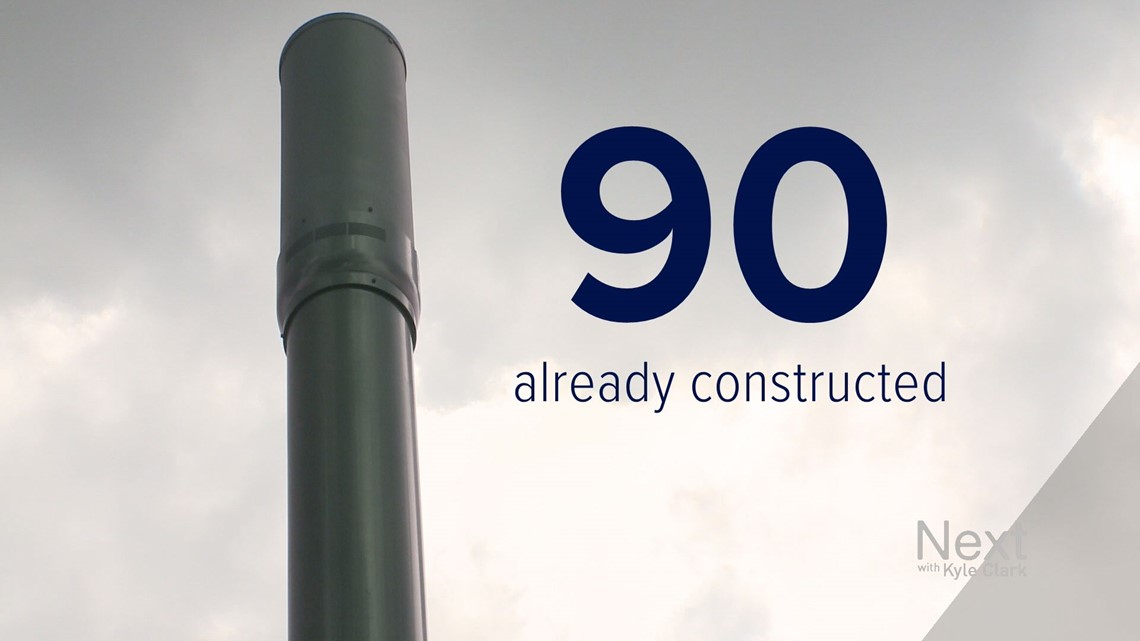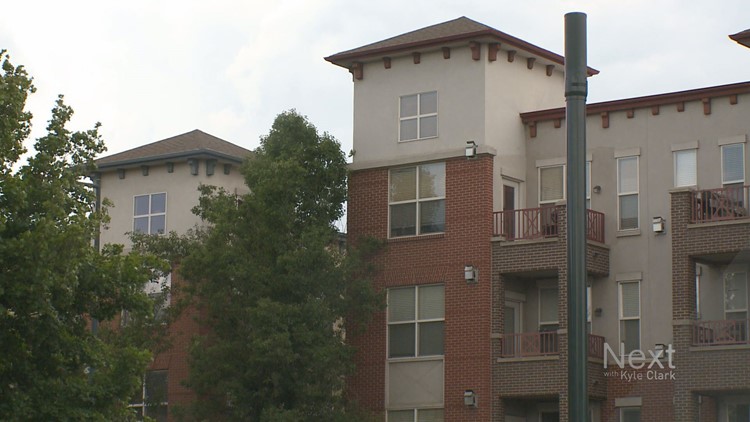DENVER — Alison Sheesley says she moved to Congress Park because of the character of the neighborhood.
She and her husband have put a lot of work into their portion of the duplex and with the neighbors, they’ve really stepped up the landscaping on an easement that runs along their sidewalk on 11th Avenue.
So, you can understand why she’s worried about a proposal she on the Congress Park Neighbor’s Facebook page.
“Verizon has proposed a list of cell tower facilities,” she said. The list would include an area on that easement, yards away from her home.


“This cell tower is basically going to be put in without our consent as homeowners,” she said.
Small cell towers are a relatively new development in the city. They are meant to boost cell signal beyond the much larger towers.
And in 2017, Colorado lawmakers passed a bill that forces cities to approve permits for towers in the public right of way at a much faster pace, citing the difficulty with negotiating with private property owners.
“State law requires that we permit these in the public right of way within a certain period of time,” said Heather Burke, spokeswoman for Denver Public Works.
The city has between 90 and 150 days to rule on the permits for the towers.
“One new thing this year is we put design requirements in place,” Burke said.
Those requirements say the towers:
- Cannot impede, obstruct, or hinder pedestrian or vehicular travel.
- Not located along the frontage of a Historic building
- Cannot significantly create a new obstruction to property sight lines.
- Not at the intersection of property lines, or along secondary property street facing.
- Placed within the street amenity zone whenever possible (between the curb and sidewalk)
- In alignment with existing trees, utility poles, and streetlights.
- Equal distance between trees when possible, with a minimum of 15 feet separation such that no proposed disturbance shall occur within the critical root zone of any tree.
- With appropriate clearance from existing utilities.
- 10 feet away from the triangle extension of an alley way flare (to preserve access)
- Not within 100 feet of the apron of a fire station or other adjacent emergency service facility.
- No closer than 250 feet away, radially, from another privately-owned freestanding small cell.
Since the city began accepting applications, 90 towers have been constructed by utilities. 100 permits for towers have been approved and are waiting for construction. Burke said 150 applications are under review.


“I think that in the rush to get this done, the state has taken away the ability of the city to protect homeowners as it sees fit,” Sheesley said.
Is there something happening in your neighborhood that you want to tell Next about? Email Next@9news.com.



